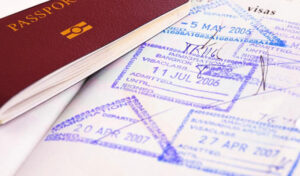Divorce is the legal dissolution of a marriage, and in Thailand, the process is governed by the Civil and Commercial Code (CCC). Whether the divorce is mutual or contested, understanding the procedures, grounds, and implications is essential for navigating this challenging period. This article provides a comprehensive overview of filing for divorce in Thailand, including legal requirements, types of divorce, and key considerations.
Types of Divorce in Thailand
In Thailand, divorces can be categorized into two main types: mutual consent divorce and contested divorce.
- Mutual Consent Divorce (Uncontested Divorce)A mutual consent divorce is the simplest and quickest method of divorce in Thailand. Both parties must agree to end the Thailand marriage and sign a divorce agreement outlining the terms of their separation.
- Requirements:
- The marriage must have been registered.
- Both parties must be present at the local district office (Amphur) to sign the divorce agreement.
- Process:
- File the necessary documents, including marriage certificates and identification.
- Agree on key issues, such as child custody, division of property, and financial support.
- The divorce is finalized on the same day, and the district office issues a divorce certificate.
- Requirements:
- Contested DivorceA contested divorce occurs when one party does not consent to the divorce or disputes key issues. In such cases, the divorce must be filed in court, and the party initiating the divorce must prove valid legal grounds.
- Legal Grounds for Contested Divorce:
- Adultery: One spouse has committed adultery or maintained a sexual relationship with another person.
- Misconduct: Serious acts of misconduct, such as abuse or criminal behavior.
- Desertion: One spouse has abandoned the other for over one year without justifiable cause.
- Separation: Spouses have lived apart for over three years.
- Imprisonment: One spouse has been sentenced to imprisonment for more than one year.
- Mental Illness: A spouse suffers from a mental illness rendering them incapable of fulfilling marital duties.
- Severe Disputes: Irreconcilable differences that make cohabitation impossible.
- Court Process:
- File a petition at the appropriate court.
- Attend hearings where evidence and testimony are presented.
- The court issues a judgment based on the merits of the case.
- Legal Grounds for Contested Divorce:
Filing for Divorce: Key Steps
- Preparation of DocumentsBefore filing for divorce, gather the following documents:
- Original marriage certificate.
- Identification cards or passports of both parties.
- Household registration book (Tabien Baan).
- Prenuptial agreements (if applicable).
- Evidence supporting claims (for contested divorces), such as photos, emails, or witness statements.
- Filing the Divorce Petition
- For mutual consent divorces, file the petition at the local Amphur.
- For contested divorces, submit the petition to the Family and Juvenile Court.
- Legal RepresentationIn contested cases, hiring an experienced family lawyer is crucial to ensure proper representation and adherence to legal procedures.
- Court Proceedings
- Attend court hearings and present evidence.
- The court evaluates the case based on Thai law and the best interests of any children involved.
- Finalizing the DivorceOnce the divorce is granted, ensure the divorce certificate is properly issued and keep it for legal purposes.
Division of Assets and Debts
- Community PropertyThailand follows the concept of Sin Somros, which refers to marital property acquired during the marriage. Upon divorce, community property is divided equally unless otherwise agreed.
- Included in Sin Somros:
- Income earned during the marriage.
- Assets purchased jointly.
- Businesses established after marriage.
- Excluded from Sin Somros:
- Personal property owned before marriage.
- Inheritances or gifts received individually.
- Included in Sin Somros:
- DebtsMarital debts incurred during the marriage are also divided equally between the spouses.
Child Custody and Support
- Child Custody
- The court prioritizes the child’s best interests when determining custody arrangements.
- Both parents may share custody, or one parent may be awarded sole custody based on the circumstances.
- Child Support
- The non-custodial parent is typically required to provide financial support.
- The amount is determined based on the child’s needs and the parent’s financial capacity.
Grounds for International Divorce
Foreigners married in Thailand or Thai nationals married abroad may need to file for divorce in Thailand. The process may involve additional considerations, such as:
- Verifying the validity of the marriage under Thai law.
- Recognizing foreign divorces in Thailand (if applicable).
Challenges and Considerations
- Cross-Border IssuesIf one spouse resides abroad, serving legal notices and attending court hearings can complicate the process.
- Language BarriersNon-Thai speakers may require certified translations of legal documents and interpreters during court proceedings.
- Disputes Over Child Custody or AssetsContentious issues can prolong the divorce process and increase legal expenses.
- Cultural and Social FactorsDivorce in Thailand may carry social stigma, especially in rural areas. This can influence negotiations and court proceedings.
Importance of Legal Assistance
Divorce in Thailand can be complex, especially for contested cases or those involving foreign nationals. Engaging a skilled family lawyer can help:
- Navigate the legal system.
- Protect your rights and interests.
- Negotiate amicable settlements to avoid lengthy court battles.
Conclusion
Filing for divorce in Thailand involves distinct processes depending on whether the divorce is mutual or contested. Understanding the legal framework, preparing necessary documentation, and seeking professional guidance are critical for ensuring a smooth and fair resolution. While divorce is often a difficult and emotional process, proper planning and adherence to Thai law can help both parties achieve closure and move forward.










